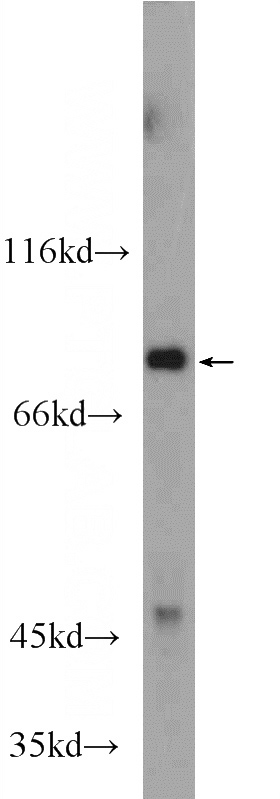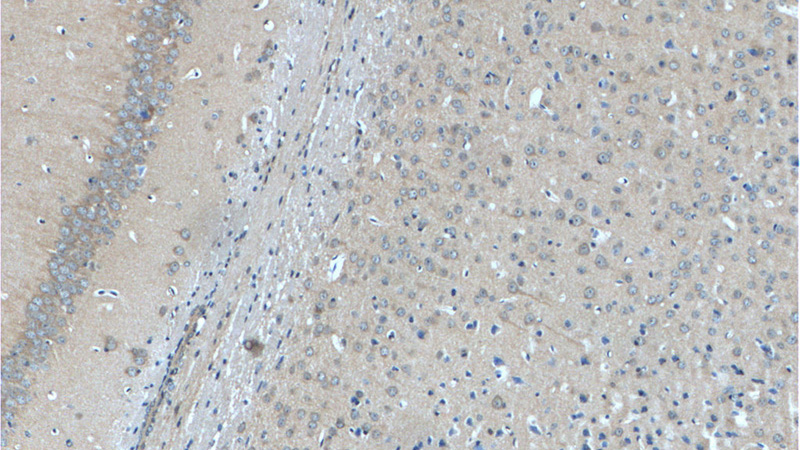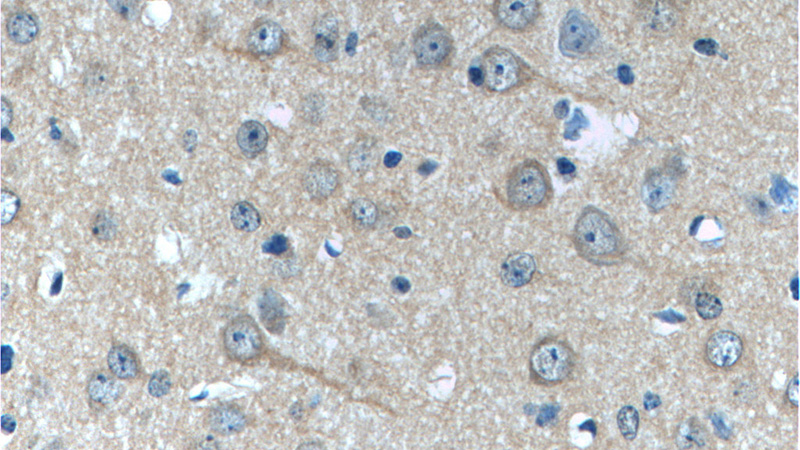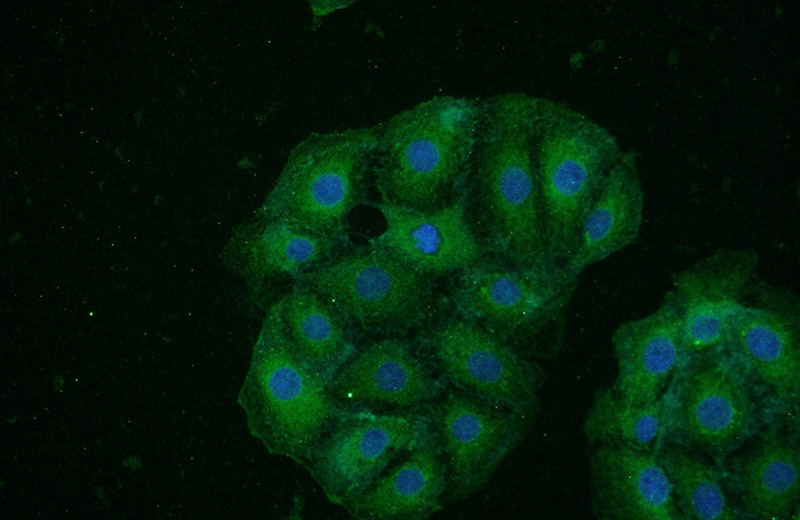-
Product Name
HAP1 antibody
- Documents
-
Description
HAP1 Rabbit Polyclonal antibody. Positive WB detected in fetal human brain tissue. Positive IF detected in SH-SY5Y cells. Positive IHC detected in mouse brain tissue. Observed molecular weight by Western-blot: 75-80 kDa
-
Tested applications
ELISA, WB, IHC, IF
-
Species reactivity
Human, Mouse; other species not tested.
-
Alternative names
HAP 1 antibody; HAP1 antibody; HAP2 antibody; hHLP1 antibody; HIP5 antibody; HLP antibody; HLP1 antibody; Neuroan 1 antibody
-
Isotype
Rabbit IgG
-
Preparation
This antibody was obtained by immunization of HAP1 recombinant protein (Accession Number: NM_003949). Purification method: Antigen affinity purified.
-
Clonality
Polyclonal
-
Formulation
PBS with 0.1% sodium azide and 50% glycerol pH 7.3.
-
Storage instructions
Store at -20℃. DO NOT ALIQUOT
-
Applications
Recommended Dilution:
WB: 1:200-1:2000
IHC: 1:20-1:200
IF: 1:20-1:200
-
Validations

fetal human brain tissue were subjected to SDS PAGE followed by western blot with Catalog No:111337(HAP1 Antibody) at dilution of 1:600

Immunohistochemistry of paraffin-embedded mouse brain tissue slide using Catalog No:111337(HAP1 Antibody) at dilution of 1:50 (under 10x lens)

Immunohistochemistry of paraffin-embedded mouse brain tissue slide using Catalog No:111337(HAP1 Antibody) at dilution of 1:50 (under 40x lens)

Immunofluorescent analysis of SH-SY5Y cells using Catalog No:111337(HAP1 Antibody) at dilution of 1:50 and Alexa Fluor 488-congugated AffiniPure Goat Anti-Rabbit IgG(H+L)
-
Background
HAP1 (Huntingtin-associated protein 1) was originally identified as neuronal protein that specifically associates with HTT/huntingtin and the binding is enhanced by an expanded polyglutamine repeat within HTT. HTT is expressed ubiquitously, while HAP1 is expressed predominantly in the central nervous system (CNS). Both HTT and HAP1 participate in intracellular trafficking. HAP1 is involved in the vesicular transport, gene transcription regulation, membrane receptor trafficking and other functions such as calcium release and protein aggregation (PMID: 19262167).
Related Products / Services
Please note: All products are "FOR RESEARCH USE ONLY AND ARE NOT INTENDED FOR DIAGNOSTIC OR THERAPEUTIC USE"
